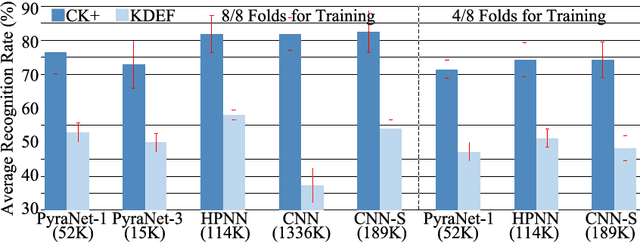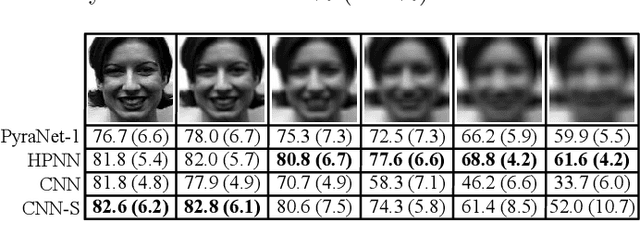A Sub-Layered Hierarchical Pyramidal Neural Architecture for Facial Expression Recognition
Paper and Code
Mar 23, 2021



In domains where computational resources and labeled data are limited, such as in robotics, deep networks with millions of weights might not be the optimal solution. In this paper, we introduce a connectivity scheme for pyramidal architectures to increase their capacity for learning features. Experiments on facial expression recognition of unseen people demonstrate that our approach is a potential candidate for applications with restricted resources, due to good generalization performance and low computational cost. We show that our approach generalizes as well as convolutional architectures in this task but uses fewer trainable parameters and is more robust for low-resolution faces.
 Add to Chrome
Add to Chrome Add to Firefox
Add to Firefox Add to Edge
Add to Edge